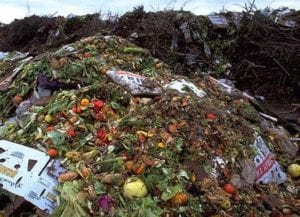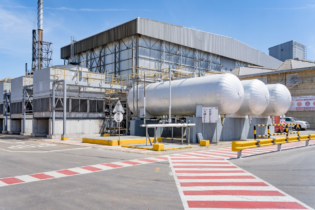The Minister of Water and Environmental Affairs, Edna Molewa, published the Waste Classification and Management Regulations and the Norms and Standards for the Assessment of Waste for Landfill and the Norms and Standards for the Disposal of Waste to Landfill in Gazette No. 36784 of 23 August 2013, for immediate implementation.
This was announced by the Department of Environmental Affairs on 2 September, in a statement which hoped to elaborate on the regulations, norms and standards and the impact thereof. According to the statement, the Waste Classification and Management Regulations developed in terms of section 69 of the National Environmental Management: Waste Act, 2008 (the Act) serve to regulate the classification and management of waste in a manner which supports and implements the provisions of the Act. Simply put, the regulations will enable the improved and more efficient classification and management of waste; provide for safe and appropriate handling, storage, recovery, reuse, recycling, treatment and disposal of waste and will also enable accurate and relevant reporting on waste generation and management. “The Regulations will also direct the consideration of higher order management options for waste, in line with the Waste Management Hierarchy; will support the beneficial use of resources from waste that does not harm the environment or health and will promote the diversion of waste from landfill.” According to the regulations, as explained by the Department, all waste generators, excluding domestic generators, must ensure that the waste they generate is classified within 180 days of its generation. The classification process will establish whether a waste is hazardous based on the nature of its physical, health and environmental properties and will determine the degree or severity of the hazard posed. The statement further added that waste classification may be peer reviewed if the Minister believes the waste has not been classified correctly. However, it also notes that there are a number of waste streams that do not require classification or assessment. These include, but are not limited to, garden waste, domestic waste, waste tyres, asbestos waste, health care risk waste and expired, spoilt or unusable hazardous products. “Once classified, waste generators must ensure that their waste is re-used, recycled, recovered, treated and/or disposed of within 18 months.” The statement also notes that all wastes that were classified in terms of the “Minimum Requirements for the Handling, Classification and Disposal of Hazardous Waste in terms of the Department of Water Affairs’’ (2nd Edition, 1998; Department of Water Affairs and Forestry) or alternative classifications that were approved prior to these Regulations taking effect, must be re-classified and assessed within three years from the commencement of these Regulations. “With regards to waste management, waste transporters and waste managers must not accept waste that has not been classified unless the waste does not require classification or assessment. Waste managers must not store waste for longer than 18 months from the date of receipt from the generator,” warned the Department.Furthermore, the Regulations stipulate that waste must not be mixed or treated if it would reduce the potential for re-use, recycling or recovery or result in treatment that is not controlled and not permanent.
The Regulations published for implementation also make acknowledgement of certain waste management activities that do not require a waste management licence. The Regulations also stipulate that records must be kept of waste generation and management. The records must reflect, amongst others, the classification of the wastes, the quantities of each waste that has either been re-used, recycled, recovered, treated or disposed of and details of who managed the waste. These records must, upon request, be made available to the Department. “These Regulations apply uniformly across South Africa, with the exception of generators of domestic waste that is collected by a municipality. An individual found in contravention of these Regulations is liable to a fine not exceeding R10 million or to imprisonment for a period not exceeding 10 years, or both to such a fine and imprisonment,” warned the statement. Norms and standards Also published for immediate implementation by the Minister, is the Norms and Standards for the Assessment of Waste for Landfill Disposal and the Norms and Standards for Disposal of Waste to Landfill, under section 7 of the Act. According to the Department, the purpose of these Norms and Standards for the Assessment of Waste for Landfill Disposal are to set out the requirements for the assessment of waste prior to disposal to landfill and to advise on the total concentration and the leachable concentration threshold limits. “As such, it is required to identify chemical substances present in the waste and conduct sampling and analysis to determine the total and leachable concentrations of the chemical substances. All analyses of the total and leachable concentrations of the elements and chemical substances in waste must be conducted in laboratories accredited by the South African National accreditation System (SANAS) within three years of the date of commencement of these Regulations,” said the statement released by the Department. According to the Department, the Norms and Standards for Disposal of Waste to Landfill seek to determine the requirements for the disposal of waste to landfill. They also stipulate the containment barriers for the different landfill types and list the barrier requirements that must be included in an application for waste management licence for a landfill site or cell. The Norms and Standards further stipulate the waste acceptance criteria for disposal to landfill and the various waste disposal restrictions.






